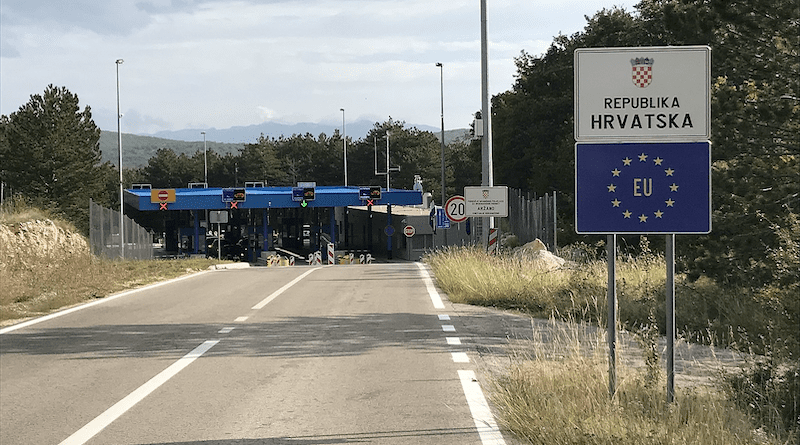Chechens Fleeing Ukraine War Mass On Bosnia-Croatia Border
By Azem Kurtic
“Chechens have been congregating close to the frontier with Croatia in recent weeks while waiting for a chance to cross into the European Union,” a report published on Friday in the UK The Times said.
The frontier mentioned is the Maljevac border crossing between Bosnia and Croatia near Velika Kladusa, a place often mentioned when reporting on migrants and refugees.
Bosnia’s Ministry of Security said some 50 Russians, mostly from Chechnya, had entered Bosnia lately, using a 30-day visa-free travel agreement between Bosnia and Russia.
“Most of these people are located near the Maljevac border crossing and want to continue their journey to the EU, because, according to their own statements, they want to avoid mobilisation in their country,” the ministry said on Wednesday, referring to the Russian invasion of Ukraine.
Bosnian police in the northwest Una-Sana Canton said they could do nothing to halt the Chechens. “Since they entered the country legally, we don’t have jurisdiction over them, but we have noticed their presence,” police told BIRN.
According to the UK media report, some of them are able to afford a hotel but the majority are sleeping outside near the border. The Times also reported that a group of 20 asylum seekers entered Croatia on Thursday, citing local media.
Chechen fighters under the command of Ramzan Kadyrov have been a core part of the Russian invasion of Ukraine.
Since Russian President Vladimir Putin announced a partial mobilisation of 300,000 reservists for the Ukrainian front, hundreds of thousands of Russians have fled the country. Some 45,000 have left for Serbia, which refused to impose sanctions on Russia.

